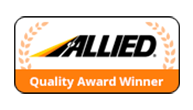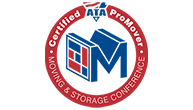So you’ve just moved into your new home and are beginning to settle down. But don’t get too comfortable, because right now is the perfect time for a walk through to make sure you take advantage of the ways you can care for and save money on your new home. Here are a few maintenance and money-saving tips for new homeowners:
- Check all toilets and under-sink plumbing for leaks or constant running. Check for faucet leaks in kitchens and bathrooms and replace washers as necessary.
- Mark any cracks in the basement with dated masking tape. In a few months, go back and check the tape to see if the cracks grew outside of the tape. If they did, you should call a specialist before the problem gets out of hand.
- Check the insulation in your attic and install more if needed. If you have an unfinished attic, pop your head up there and take a look around. You should see at least six inches of insulation. If you see that there is inadequate insulation (or if the insulation you have appears to be damaged) install new insulation.
- Install a programmable thermostat- and learn how to use it! A programmable thermostat allows you to schedule automatic increases and decreases in your home’s temperature. This allows the house to naturally warm in the summertime and cool in the winter while you are at work or asleep, preserving energy use. When it comes time for you to actively use the house, the thermostat automatically adjusts the temperature of your home back to what you prefer. Such devices save money on cooling in the summer and heating in the winter.
- Be sure to regularly check seals around all of your doors and windows to keep drafts out. This easy precaution can result in big savings when it comes to your heating and cooling bills.
- Replace your air handling filter right away. This only takes a few seconds and goes a long way. Not only does an old filter not work as well, it also has a negative impact on air flow, meaning your air handling system has to work harder to pump low quality air.
- Lower the temperature on your hot water heater down to 120 degrees Fahrenheit (or 55 degrees Celsius). This is the optimal temperature for your hot water heater. Most people do not utilize water that is hotter than that; therefore, the energy used to keep the water that hot is ineffective.
- Toss a water heater blanket over that hot water heater. This small investment will gradually save you money on your heating bill over time by keeping the heat in the water instead of letting it spread slowly out into your utility closet.
- To improve air quality, ensure that the vents in all rooms are clear of dust and obstructions.
- Keep gutters clear of leaves and debris to prevent clogging, and always make sure they drain away from the house.
- Choose energy efficient appliances, even if you have to pay more up front. The key is reliability and energy efficiency. For example, a refrigerator that uses little energy and lasts 20 years is far, far cheaper in the long haul than one that runs for 10 years and guzzles electricity.
- Install CFL and LED light bulbs in useful places, like closets. These bulbs can save you a lot of money in the long run because they have much longer lives than normal incandescent bulbs.
- Install ceiling fans in most rooms. Ceiling fans are a low-energy way to keep air moving in your home. Because of the air circulation effect, you can get away with keeping your thermostat a degree or two higher in summer and a degree or two lower in winter, netting a rather large savings.
- Clean or replace furnace filters once every month. Check and clean the dryer vent, air conditioner, stove hood and room fans regularly.
- Plant shade trees near your house. These naturally cool your home during the warm summer months, reducing the amount of direct rays that hit your house. Lowering the external temperature of your home saves significantly on your cooling bills during the summer, plus it increases your property value.
Subscribe to Reliable Van And Storage's Blog










Comments